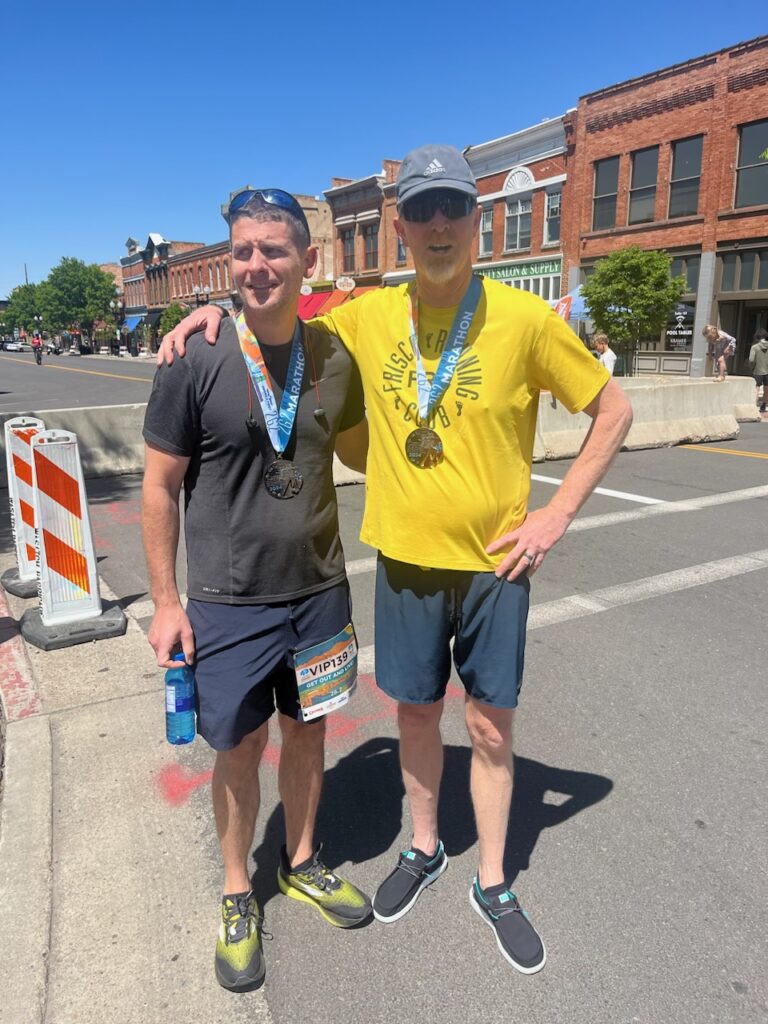You did it! You conquered the marathon, crossed that finish line, and now you’re basking in the glory. But hold on—your work isn’t over just yet. Recovery is a crucial part of the marathon experience, and doing it right can make all the difference for your body and mind.

1. Refuel and Rehydrate
After burning through thousands of calories and gallons of sweat, your body is practically begging for some TLC. Refuel with a mix of carbohydrates and proteins to replenish your glycogen stores. Aim for a carb-to-protein ratio of about 3:1 to 4:1. And don’t chug a gallon of water at once—rehydrate gradually over the next few days.
2. Rest, But Not Too Much
Sure, rest is essential, but turning into a couch potato won’t do you any favors. Gentle activities like walking, swimming, or light cycling can keep your blood flowing and muscles from stiffening up. And while that deep tissue massage sounds tempting, give it a couple of days to avoid any additional muscle damage.
3. Embrace Sleep
Sleep is your best friend right now. Your body needs those 7-8 hours of quality sleep each night to repair and grow muscle. Think of it as your body’s natural way of rewarding you for all that hard work.
4. Monitor Your Metabolism
Ever heard of metabolomics? It’s a fancy way of saying we’re looking at how your body’s tiny chemical reactions are bouncing back after the marathon. Different intensities and durations of exercise affect your metabolic recovery, so understanding these changes can help tailor your recovery plan.
5. Cherry-Pick Your Nutrition
Turns out, tart cherry juice is more than just a tangy treat. It’s been shown to reduce inflammation and muscle damage, speeding up recovery. So, adding this to your post-marathon diet might just be the secret sauce you need.
6. Have a Recovery Buddy
You might feel on top of the world, but having someone with you in the hours after the race can be crucial. From fainting to irregular heartbeats, post-race complications can sneak up on you. So, keep a buddy around just in case.
7. Ease Back Into Running
When you’re ready to lace up those running shoes again, start slow. Make the first few runs easy and short, and listen to your body. It’s not a race (at least not anymore). Gradually ramp up the intensity based on how you feel.
Final Thoughts
Recovering from a marathon isn’t just about resting—it’s an active process. From fueling and hydration to light activity and sleep, every step helps your body bounce back stronger. So, take it slow, listen to your body, and you’ll be back on the road in no time.
You’ve earned this recovery. Embrace it, enjoy it, and maybe even have a little fun with it. After all, you just ran a marathon—what’s a little cherry juice and extra sleep in the grand scheme of things?
References
- “The Importance of Post-marathon Recovery Training,” Shirley Ryan AbilityLab. Source
- “Ready, Set, Go: New Study Shows How Marathon Running Affects Different Foot Muscles,” ScienceDaily. Source
- “Recovery After Running a Marathon,” Verywell Fit. Source
- “The Metabolic Recovery of Marathon Runners: An Untargeted 1H-NMR Metabolomics Perspective,” Frontiers. Source
- “10 Ways To Recover From a Marathon,” Yale Medicine. Source
- “Marathon Runners Should Pick Cherries for Speedy Recovery,” ScienceDaily. Source